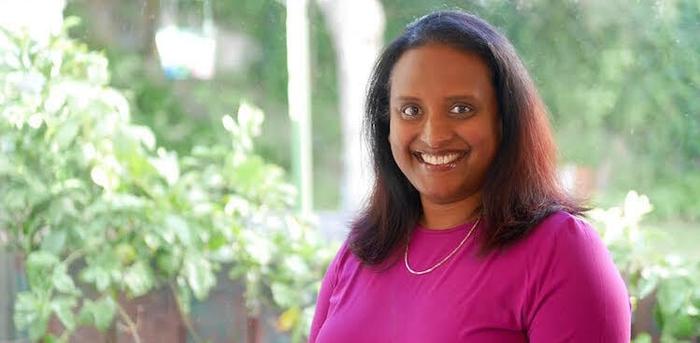
When Vidya Kurella—Dispute Resolution Manager at New Zealand Fire and Emergency—and her family decided to move across the world two years ago, she took a break from lawyer life to study pastry cooking at Le Cordon Bleu.
“I’ve always enjoyed baking,” Kurella explains, “so I wanted to explore that area more. And, since we were moving to a new country, I figured it’d be a good time to try something new. I was even open to pastry becoming my new career path. But getting my Diplome de Patisserie (read: certificate in pastry-making) was much more challenging than I’d expected. I’m really glad I did it, but now I just bake for pleasure.”
When she finished at Le Cordon Bleu, Kurella decided to go back to law. But the process was incredibly daunting. She hadn’t needed to job search for a very long time. After all, she was at her last gig—Circuit Mediator for the U.S. Court of Appeals for the Second Circuit—for over a decade. And she was in a brand new country.
But then, she stumbled across some networking articles on The Muse, which inspired her to chat with some new friends she’d made in New Zealand.
“At the time, it was mostly stay-at-home moms,” she explains. “I spoke with them about going back to work and told them what I was looking for. That led to some informational interviews with people they knew in the field. The more people I met, the better picture I got about how I could add value.”
Flash forward to today, and she has a job she loves with New Zealand Fire and Emergency, where she manages their disputes, is designing a new statutory dispute resolution scheme, and goes to a lot of meetings to establish relationships with co-workers in departments such as human resources, operational management, and fire risk management. As a people person, this is her favorite part.
Read on to learn more about Kurella’s stint in pastry-making and what it was like to apply for a job in another country.
What Was it Like to Take Classes at Le Cordon Bleu?
It was fabulous. Typically, there’s a three-hour demonstration followed by a three-hour practical in which you have to replicate what the chef made. The curriculum’s based on skill development, so classes start easy and gradually get more complicated.
I discovered that I really like chocolate work—we learned how to make chocolate mousse 11 different ways!—and Viennoiserie. The time constraints for each lesson were tough, though. We had to move quickly and confidently through the kitchen, and that can be hard when learning new skills.
What Are the Logistics of Finding a Job in a New Country?
It was harder than I thought it would be. New Zealand’s immigration process is straightforward but demanding. One exception is the Silver Fern Job Search Work Visa. Each year, they give out 300 of those to people who speak English and are 35 or younger. My husband got one, so he was able to come here for nine months to look for a job.
The visa was only for him, though. While I could move with him, I couldn’t seek employment right away. That’s partly why I went as a student. Once my husband got a job, they upgraded his visa and I could get a work one for two years. Then, after I graduated, we established residency through his employer, which meant I could get a resident visa. This opened up a lot more jobs for me.
Why Did You and Your Husband Decide to Move to New Zealand?
Soon after getting married, we went to an art fair and fell in love with a New Zealand artist’s work. We almost bought a very expensive piece, but opted to take a trip to New Zealand instead. It was fantastic. For months afterward, we joked about how awesome it’d be to live there.
Then, one random day, my husband asked me why we shouldn’t move there. I couldn’t think of a good reason, so we decided to do it. I don’t know how to explain it, but it just felt right. While we do miss our family, friends, and a good bagel once in a while, we have a more relaxed lifestyle here, which is what we’d wanted. Overall, we love our lives here!